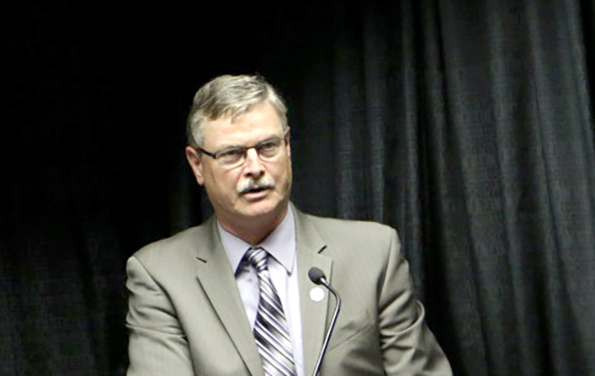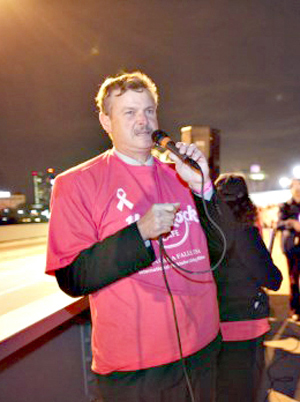
Waste is the Name of the Game for Dyster and His Casino Spending PlansBy Mike Hudson JULY 28, 2015 |
|---|
Is the city of Niagara Falls better off now that it was when Mayor Paul Dyster was elected eight years ago? Dyster, who holds a PhD from Johns Hopkins University, might say yes. Critics, pointing to Federal Bureau of Investigation statistics that show Niagara Falls to be the most dangerous city in all of New York, and the state Financial Restructuring Board for Local Governments study that found Niagara Falls to be the state’s most highly taxed municipality, might disagree. One thing is certain. The mayor was gifted with a windfall enjoyed by none of his predecessors, a sum of nearly $200 million, based on the city’s 25 percent share of the state’s 25 percent take of slot machine revenue at the Seneca Niagara Casino, which opened while he was serving on the city Council. According to city Controller Maria Brown, the annual take from the casino could all but eliminate the need for property taxes here. "Our current levy is about $29 million per year, so yes, you could almost wipe out the property tax," she said. But according to Dyster, there’s a catch. The money can only be used for “economic development,” he says. And who determines what constitutes “economic development”? Mayor Dyster, of course! "It's like a poor person having a rich uncle that sets up a trust fund for them but that can only be used for certain purposes," he said. “It’s like you got a raise at work,” he added. “It’s not like you won the lottery.” That the elimination of property taxes would spur economic development is a given. Businesses and people looking for a place to settle down would flock to the city to take advantage, spurred on by the national news media coverage that would attend a decision to virtually eliminate property taxes. But Dyster says it can’t be done, and has spent every nickel of the casino revenue on other things. Like garbage cans. All of the $2.1 million used to buy the microchipped totes needed for Dyster to launch his disastrous recycling program (See related story) came out of the casino fund. The Aquarium of Niagara got $100,000 to improve the habitat for the penguins it keeps there, and Community Missions got $150,000 because they forgot to pay their taxes to the IRS. Nearly a million went to the Niagara Falls Ice Pavilion, including a whopping $269,000 in consulting fees alone. Dyster paid a consultant $112,430 to write a “downtown parking plan;” handed $373,581 to his board at the NFC; gifted the infamous Holiday Market $225,000; awarded $20,000 to the Blues Festival; paid a consultant $7,320 to design signs at LaSalle Waterfront Park; covered “additional costs” related to the Culinary Arts project at $278,290; paid a private operator $59,257 to remove tree stumps; put a new roof on the Carnegie building for $659,810; joined the Buffalo Niagara Enterprise at a cost of $50,000; landscaped the downtown “medians and traffic circle” for $57,397; put an engineering consultant day-to-day in city hall for a minimum 2014 cost of $94,000; gave the Isaiah 61 organization $500,000; paid $105,662 in 2013 for an Underground Railroad Interpretive Center “change order;” paid $20,000 to repair a Sal Maglie Stadium light tower; paid $90,000 to replace two light poles in a city lot next to Wrobel Towers and dumped $459,757 into the city’s “ZOOM” program since 2011. "We've also used casino revenue to assist businesses in the city that -at least hypothetically- are in competition with the tax free restaurants, for example, inside the Seneca Niagara Casino," said Dyster. One of those businesses, the Hard Rock Café, received well over $700,000 to stage a series of rock concerts in direct competition with local concert promoters trying to do business in the city. How any of this constitutes “economic development” is a mystery. It is more like a personal shopping list, Dyster’s, made up of whims, paybacks to political backers and financial favors to various special interest groups. Last week, a reporter for WGRZ Channel 2 television asked Dyster about the appallingly low share of casino revenue the city actually received. Since Dyster has been mayor or on the city Council for most of the current century, the reporter was interested in why he hadn’t done more to lobby for an increased share. Dyster’s answer was stunning. "I'm assuming that if they (New York State) were paying us a much larger share of casino revenue out of their share that they might simultaneously say, 'by the way, you can pick up more of the tab since you're getting more of a profit from the casino'." In other words, Dyster said that he feared the city getting its fair share would result in cutbacks to other forms of state aid it receives. When asked how the city managed to burn through nearly $200 million and have basically nothing to show for it. Dyster blamed the city Council. “Every single use of casino revenues has been approved by the city Council, so these decisions are not made by the mayor’s office,” he said with a straight face. The reality is that every single expenditure of casino revenue has been based on Dyster’s wishes. In his mind, he has two budgets; the one that comes from property taxes and the state and federal governments that is used to actually run the city and the casino money, which can be used to fund an endless shopping spree and good times. And even though the city is so broke that the state Financial Restructuring Board for Local Government has been asked to step in, Dyster continues to spend the casino revenue like a drunken concert goer. Just last week, he bought a 5.5 acre property, at 3625 Highland Ave. for $165,000, more than twice it’s actual value, according to the city Assessor’s office, of just $72,200. There are three buildings on the parcel, at least two of which will have to be torn down, and as part of the former Union Carbide complex in the city’s North End, potential environmental issues abound. And for dessert, he tossed $50,000 to the good old boys at the Buffalo Niagara Enterprise for a year’s membership. When it comes to his handling of the greatest financial windfall in the city’s history, there is but one word to describe Niagara Falls Mayor Paul Dyster: Incompetent.
|
| Paul Dyster: Incompetent at Every Level |
| Dyster Recycling Program a Bust; Numbers Show Chump Change Return |
| Dyster Engineering Disaster Here; City Engineer Job Remains Open |
| The Best and the Brightest? No, Just the Most Expensive |
| Senator Ortt Questions Cuomo Wage Hike |
| Waste is the Name of the Game for Dyster and His Casino Spending Plans |
| Residents of 72nd Street Dreading Third Winter With No Running Water |
| City Streets a Mess as Dyster’s Attention Turns to Cricket Field |
| Signs Point to Dyster Loss |
| Dyster’s Record as Crime Fighter Dismal, to Put it Very Charitably |
| Dyster and Touma Produce Stage Play-Story Here |
| Dementia Care Conference in Niagara County |
| State Audit Rejects Dyster’s Version of Fiscal Facts Dyster Blames State-Seneca Impasse For City Financial Woes |
| Dyster Orders up Sweet Job for SWEET Employee Brook D’Angelo |
| Alicia Laible Says City Should Be Run More Like Private Business |
| On the Campaign Trail |
| Only In NT: Vote for Real Public Servants this Year! |
| Death Notice |
| Facts are Facts Seneca , Albany Wins Big, Dyster is Small |
| Letters to the Editor |
| 'Too White' Neighborhoods Slated for Change |
| Skrlin the Great Teaches PHD |
| Taxpayer Watchdog Poloncarz Finds Sweetheart Assessment for Himself |
| NT History Museum Book Sale Saturday |
| Grati Awarded Sass Scholarship |
| The Rookies -1 |
| A Poem and Rhyme of Childish Nonsense, Mirth and Absolutely No Worth |
| City Hall Jokes |

